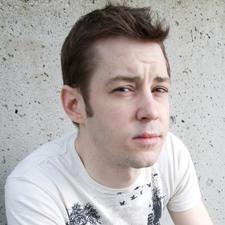A Kamloops judge has declined to add a hate crime designation to her conviction of a man who assaulted two gay men a year ago, citing credibility issues with the gay men’s testimony and their failure to conclusively identify the man who punched them both in the face.
“The person who attacked them was motivated by at least intolerance if not hatred,” provincial court Judge Stella Frame ruled.
“Horrible and unacceptable slurs were hurled at them as part of the assault upon them. Such vile behaviour should not be tolerated but it will, regrettably, go unpunished in this case.”
Brock Froese, 24, was convicted Mar 6 of one of two counts of assaulting Michael Croteau and Benjamin Friesen at a Kamloops pub Mar 28, 2008.
Frame found all three were on the dance floor and that someone had been bumping into Froese who had just had surgery.
The Crown alleged Froese approached the two gay men on the dance floor and smashed their heads together.
Froese admitted he pushed someone and answered “I think so” when asked if their heads collided. He said he didn’t intend for that to happen.
“I accept that Mr Froese pushed one of Mr Friesen or Mr Croteau with sufficient force that they collided and knocked their heads together,” the judge ruled.
But she found there was “reasonable doubt” that Froese acted out of discrimination.
She fined him $500.
Prior to that incident, the couple was dancing when Friesen testified that someone asked why they were dancing together if they were two guys.
Friesen reported the comment to police at the time, Frame noted, but she called his testimony of the same fact a year later unreliable.
She said Croteau testified the man’s speech was abrasive. “He said the male was yelling in an angry way,” she found, noting that Croteau’s and Friesen’s descriptions of the exchange differed.
After their heads collided, the court heard that Friesen and Croteau then approached a man near the dance floor and asked why he had smashed their heads together.
“He responded by calling them queers and fags,” Frame ruled.
That person then punched both men in their faces, she decided.
When the gay men recovered from those punches, the court heard that Croteau asked the man who punched them what that was all about.
“He then called them ‘faggot,’ ‘gay,’ ‘homo’ and ‘fucking faggot,’” Frame ruled.
But the judge pointed out that Froese denied he made any anti-gay comments in the bar.
“He said he has no issue with people who are gay,” Frame wrote in her decision.
She also found that no reference to the “fucking faggot” comment was made in Friesen’s report to police.
Shortly afterwards the bar closed and people moved outside.
A friend of the couple’s, Jennifer Deacon, testified that Croteau pointed out the man who had punched him.
Deacon said the man had tattoos down his arm.
Deacon testified that the man was being belligerent, testimony the judge called inconsistent with the evidence of the complainants.
“I do not accept this aspect of her evidence,” Frame ruled.
The judge also heard that Froese or someone with him called Deacon a “dyke” outside the club.
“That he or someone else he was with called Ms Deacon a dyke is no evidence that he does have anti-gay sentiments,” the judge ruled.
In her decision, Frame said she had to assess the reliability and credibility of the complainants.
She noted that neither Friesen nor Croteau phoned police immediately.
Friesen left town for four days the next day while Croteau left Kamloops two days later for three weeks.
“He said the fact that he was attacked for his sexual preference was a very large issue in his mind even though he did not go to police,” Frame wrote in her decision.
Frame also found the identification of the accused was tainted.
She noted Friesen identified the wrong person in the court gallery.
The man identified in court had been at the bar that night, she added.
Further, she said police gave Croteau Froese’s name.
She said Croteau then googled Froese and saw his picture and tattoos.
“This regrettably leaves significant concern that Mr Froese was identified because of the name given by the police and the pictures viewed on the internet, rather than an actual identification of the person who assaulted the complainants on the night in question,” she ruled.
That, she said, raised reasonable doubt.
Croteau says Frame’s ruling adds insult to injury.
“It makes me feel like I am being called a liar,” he says. “It’s pretty traumatic.”
In her decision, Frame said she believes anti-gay slurs were uttered that night, but not during the assault committed by Froese.
She found that the comments uttered later were inadvertently reconstructed by Friesen and Croteau in statements to police and at trial.
“This does not mean to say that I think they lied or that all their evidence is unreliable,” she ruled.
Events may have become mixed over time due to “brooding over the matter to the point of exaggeration,” she ruled.

 Why you can trust Xtra
Why you can trust Xtra


